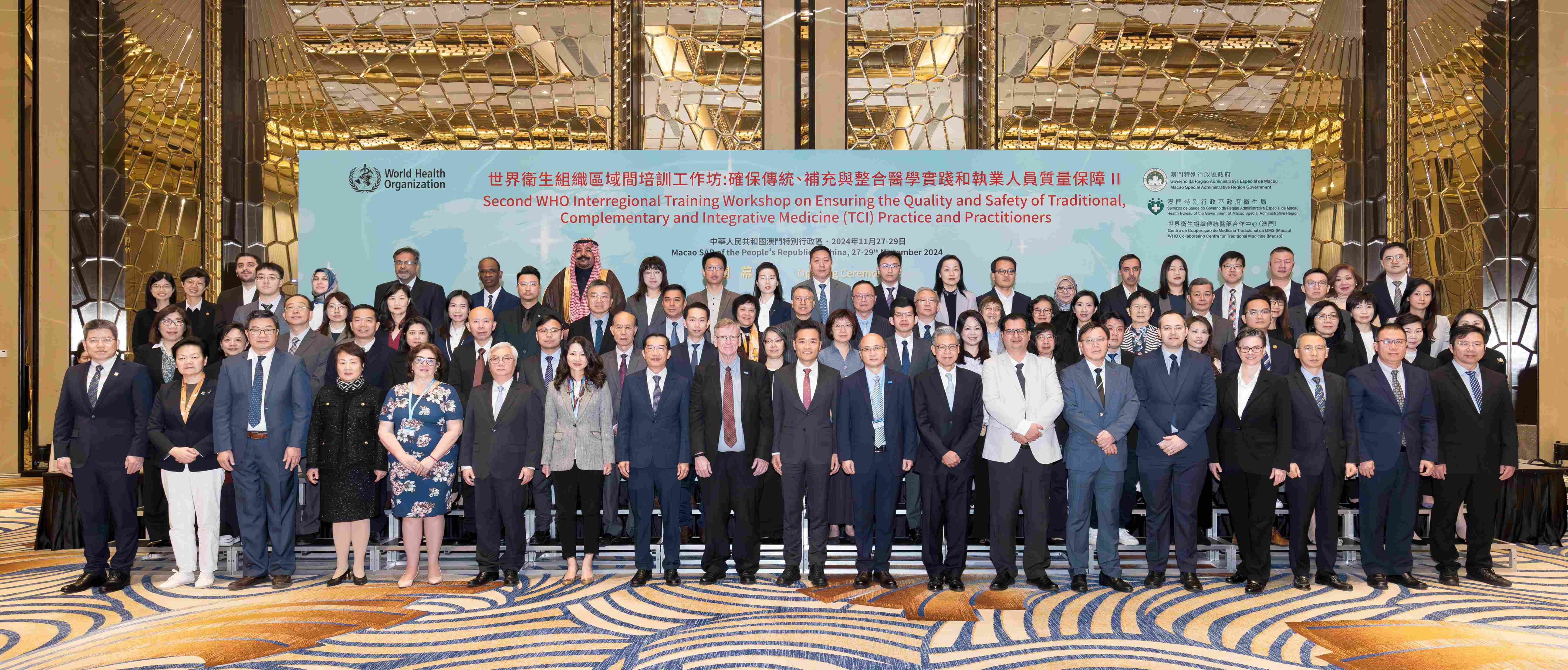A global workshop has taken place in Macao Special Administrative Region of the People’s Republic of China (Macao SAR) involving health practitioners and policymakers from 11 countries and areas. The workshop aimed to help build critical skills for supporting access to safe, high quality traditional medicines through health-care systems.

Co-hosted by WHO and the Government of Macao SAR, the Interregional Training Workshop on Ensuring the Quality and Safety of Traditional, Complementary, and Integrative Medicine Practices and Practitioners was held from 27 to 30 November.
Dr Rudi Eggers, WHO Director of Integrated Health Services, highlighted the importance of the event, stating, “This workshop reinforces WHO’s commitment to people-centred care, ensuring that everyone has access to health care that is safe, respectful and responsive to their needs and values.”
Participants included representatives from 11 countries and areas, covering five WHO regions. The workshop addressed a wide range of topics including ensuring safety and quality, developing effective policy frameworks, strengthening education and training for practitioners, and enhancing service delivery. These discussions supported WHO’s objectives under the Fourteenth General Programme of Work and laid the groundwork for the upcoming WHO Traditional Medicine Strategy 2025–2034.
Dr Lo Iek Long, Director of the Health Bureau of the Government of Macao SAR, reaffirmed Macao’s dedication to supporting WHO’s initiatives, enhancing global exchanges and promoting the collaborative development of traditional medicine.
Through expert-led discussions, collaborative group work and site visits to Macao’s health institutions, participants explored practical solutions for incorporating traditional and complementary medicines safely and effectively into health-care systems. The workshop also fostered international knowledge sharing, providing a platform for countries to exchange experiences and build technical capacity.
The hybrid format of the three-day interregional training, followed by a one-day local training workshop on 30 November 2024, enabled broad participation, with both on-site and online attendees benefitting from interactive sessions and networking opportunities. This event underscored WHO’s commitment to assist Member States in strengthening their traditional medicine frameworks.
.jpg?sfvrsn=74680d1a_1)
The Government of Macao SAR established the WHO Collaborating Centre for Traditional Medicine in 2015. Since then, Macao SAR and WHO have co-organized 15 interregional training workshops, providing training for over 2700 health-care professionals worldwide to enhance professional standards relating to traditional medicines in various countries.
As global demand for traditional medicine continues to grow, WHO remains dedicated to supporting countries in developing robust systems to ensure their safe and effective integration into health-care services.
